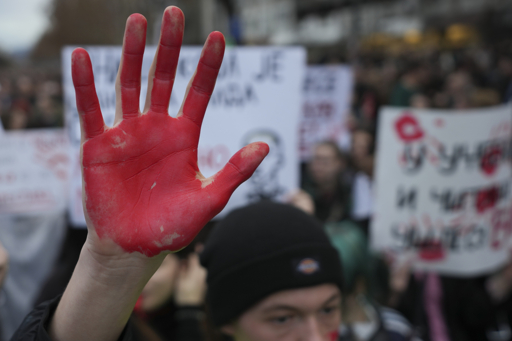This is an opinionated article by Engjellushe Morina, Senior Policy Fellow, and Angelica Vascotto, pan-European Fellow at the European Council on Foreign Relations.
This winter has seen Serbian president Aleksandar Vucic skating on dangerously thin ice. Mass student-led anticorruption protests have led to the resignation of the prime minister, Milos Vucevic, as well as several other members of his government. Last week, the president hinted that the turmoil could lead to a snap parliamentary election come spring.
But public anger and Vucic’s collapsing government are far from his only problems. Even before the protests, the president’s longstanding “à la carte” approach to foreign policy of hedging Serbia between the West and Russia (with a side order of China) seemed to be in trouble. Both the European Union and Russia have been pressing Belgrade to choose a side. Now, Vucic has found himself with very little international sympathy for his domestic woes—and very little room for manoeuvre.
This gives Europeans a key opportunity to help steer events towards stability and democratic progress while minimising the risk of regional spillover. To prevent prolonged instability and bring Serbia back on track, the EU should support civil society, address regional tensions, and reinforce Serbia’s European trajectory.
[…]



What? People ‘prefer’ stability over democracy if they have no choice, as stability and democracy are not mutually exclusive. This argument is completely out of touch.
These people are already protesting explicitly for democracy. And this is not (or, let’s say, not only in this particular case) about Russia, but about China. Just read the article. There has been 15 dead people already, people are protesting for democracy, and then such a comment?
Do people in dictatorships ‘prefer’ living there if they have no choice?
Serbia is not a dictatorship. It is a democracy with deficits.
You are arguing a strawman anyways as I am agreeing with you that better democracy is worth it, but the world is not so black and white and I can accept that some people have different opinions on this matter.